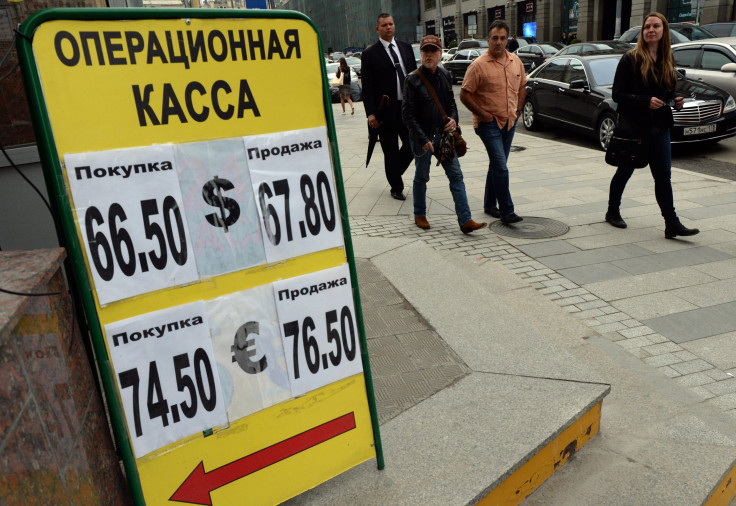Russian Investment Slows Amid Economic Uncertainty, Military Action In Ukraine And Syria

Against a new backdrop of Russian airstrikes in Syria, investors in Russia have been putting expansion plans on hold as uncertainty over the ruble, low oil prices and sanctions continued. While capital investment has declined in Russia this year, corporate profits have risen. But many businesses were still unwilling to invest, Bloomberg reported.
Corporate profits had risen by 38 percent this year, according to Bloomberg. Despite this, business owners have taken a negative outlook with regards to the Russian economy and halted construction and expansion plans.
"Businessmen and ordinary people have formed strong negative expectations," former Finance Minister Alexei Kudrin told Bloomberg. “That induces capital outflows and leads to greater economic contraction.”
The World Bank released its latest projections for the Russian economy Wednesday saying that with continued economic sanctions and low oil prices they expected the Russian economy to contract by 3.8 percent in 2015. Inflation remains in double digits impacting real wages.
“Due to the severity of the projected contraction and the vulnerability of lower-income households to growth shocks, poverty rates are projected to increase sharply,” said Andras Horvai, World Bank Country Director for the Russian Federation. “This will accelerate an already troubling rise in the poverty rate, which climbed from 13.1 percent in the first half of 2014 to 15.1 percent in the first half of 2015.”
The U.S. and the European Union lobbied sanctions against Russian businesses and individuals following Russia’s annexation of the Crimean peninsula in March 2014. With Russia starting airstrikes Wednesday against targets in Syria, there has been another dimension added to economic uncertainty stemming from the country’s geopolitical actions.
“Maintaining fiscal sustainability will become an especially pressing challenge as low oil prices deplete fiscal buffers, and this will necessitate difficult policy choices for the 2016 budget proposal,” said Birgit Hansl, a World Bank economist for the Russian Federation.
Russian economic growth is expected to continue to slow, with the country’s output falling to levels not seen since the early 1990s, Kudrin told Bloomberg.
© Copyright IBTimes 2025. All rights reserved.






















